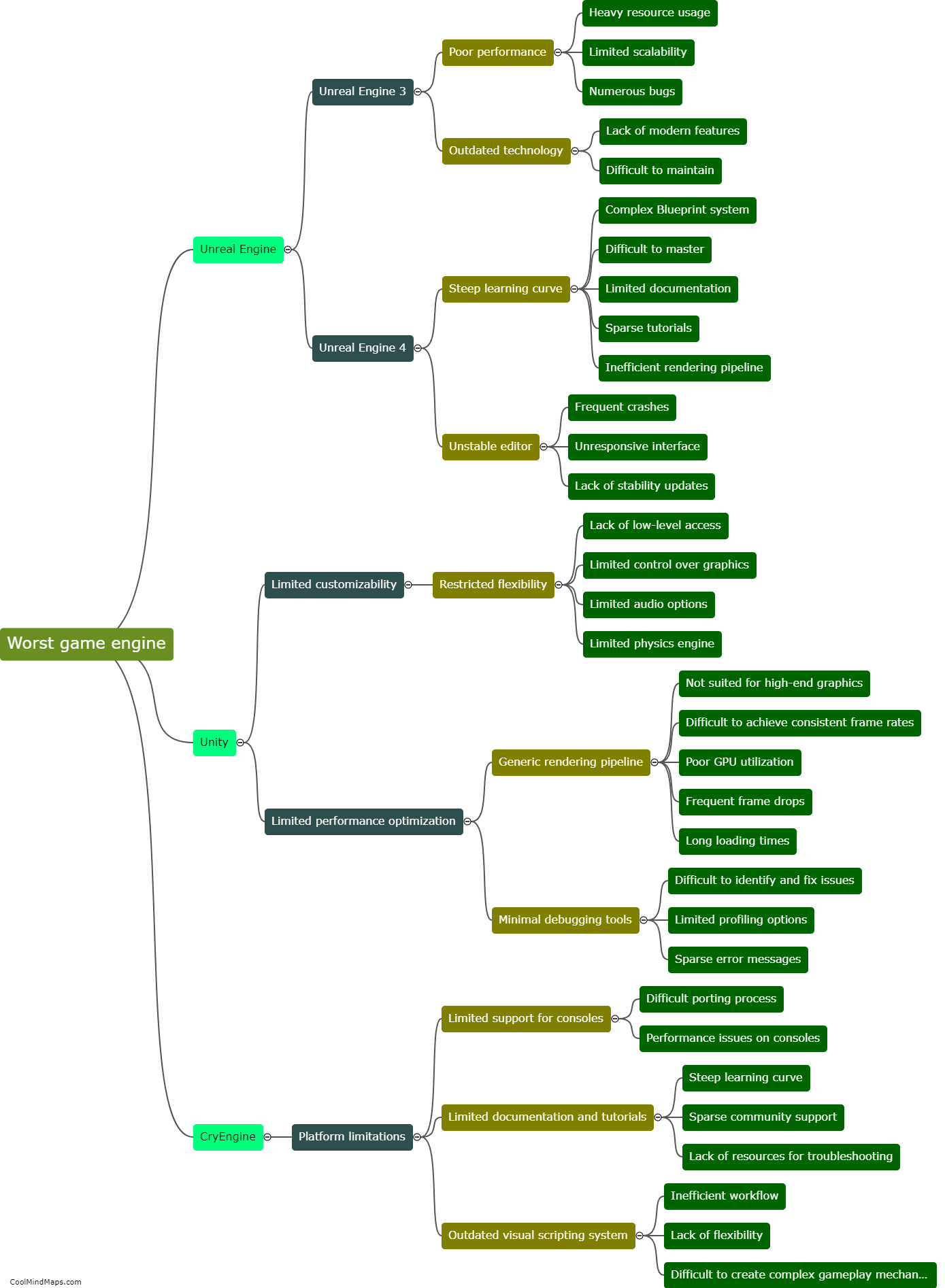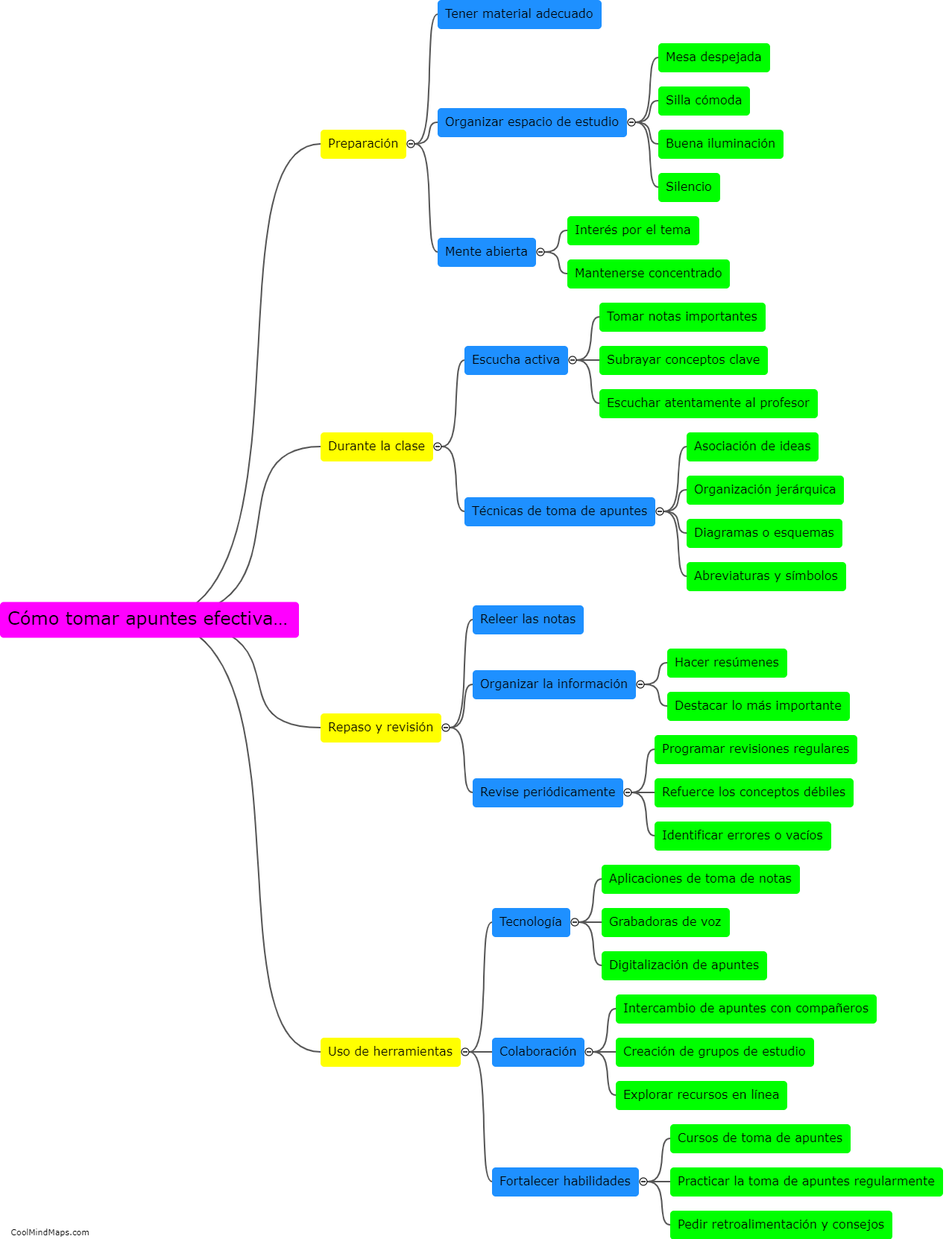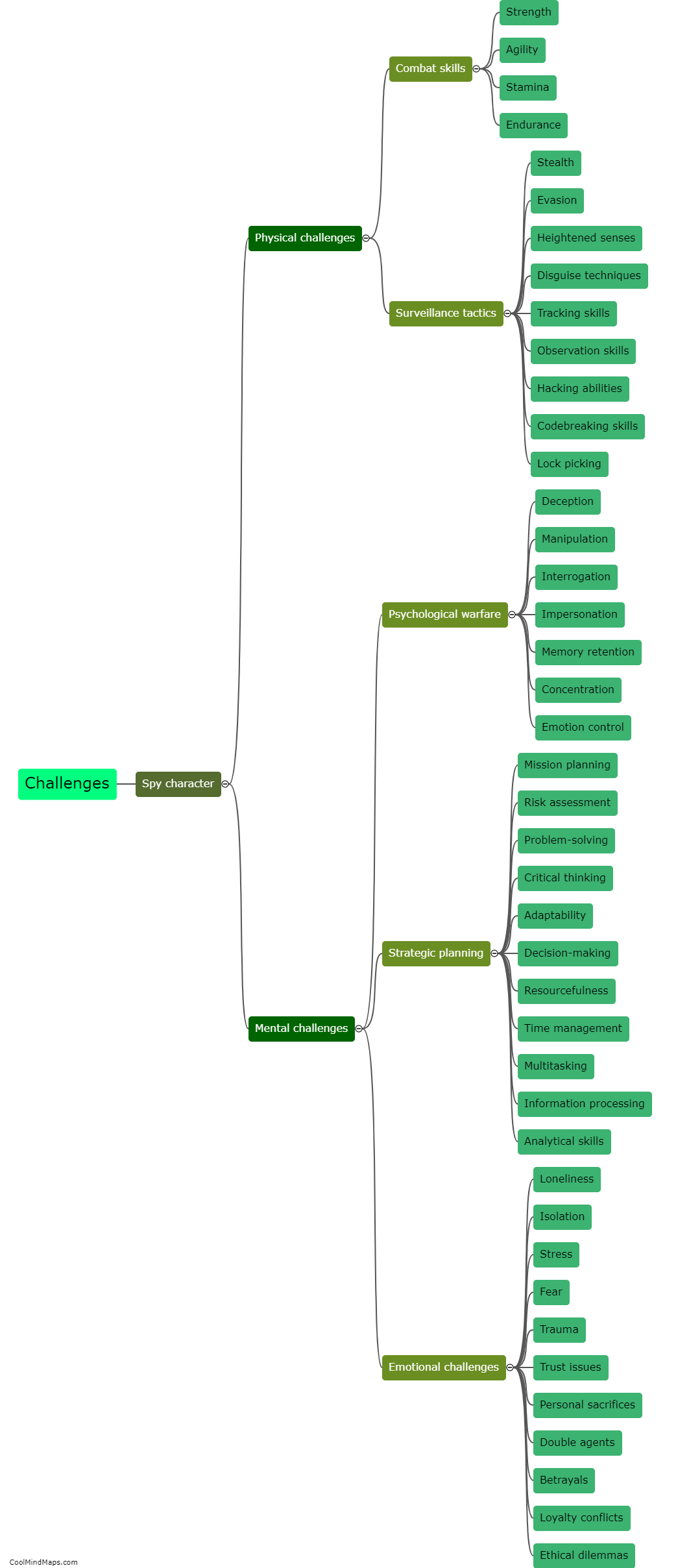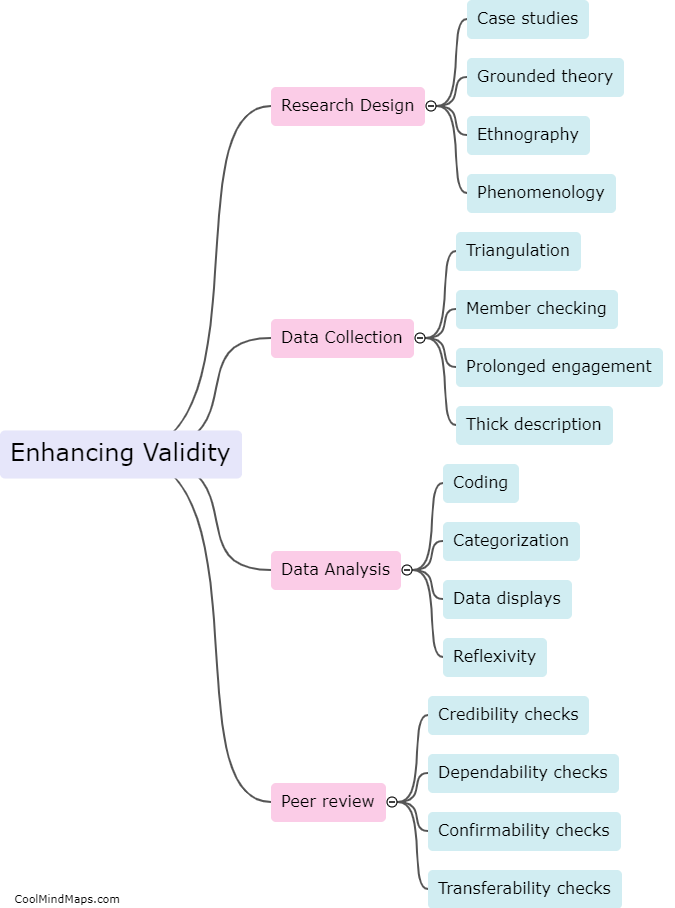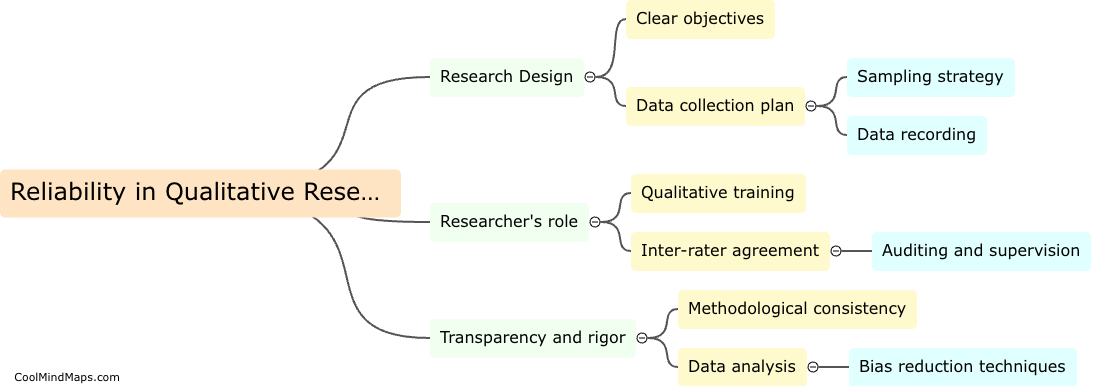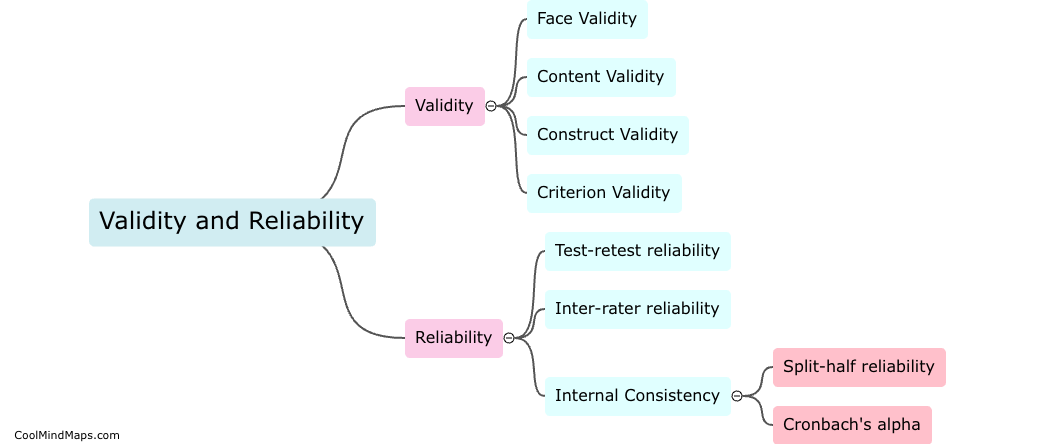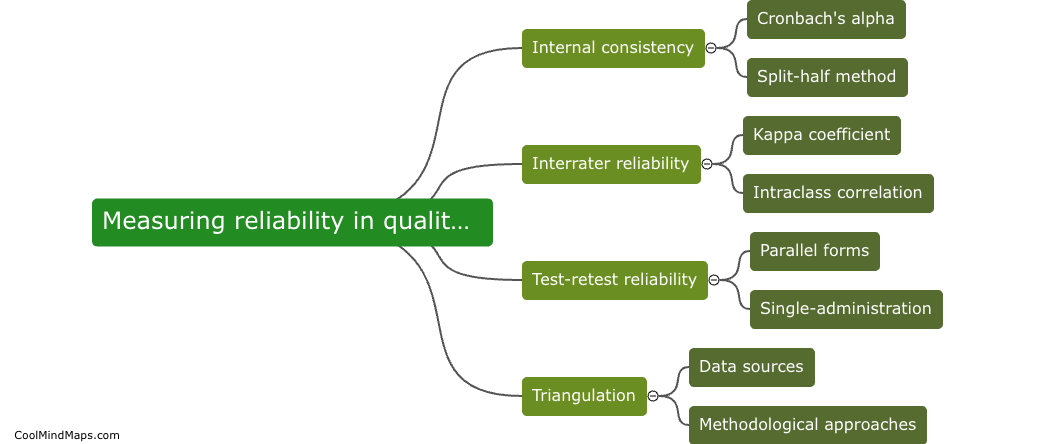How is reliability achieved in qualitative research?
Reliability in qualitative research refers to the consistency and repeatability of findings, results and conclusions. The process to achieve reliability in qualitative research includes various methods. Firstly, the researcher must carefully and systematically design the study to ensure that the methods used to collect data are as reliable as possible. Second, triangulation (use of multiple sources of data) is employed to validate findings from different methods used. Third, the researcher must address any biases, preconceptions, and prejudices that could influence their interpretations. Finally, including peer debriefing, member checking, and even a second opinion from independent researchers can help in verifying the trustworthiness of the data, and ensure that conclusions drawn are reasonably reliable.
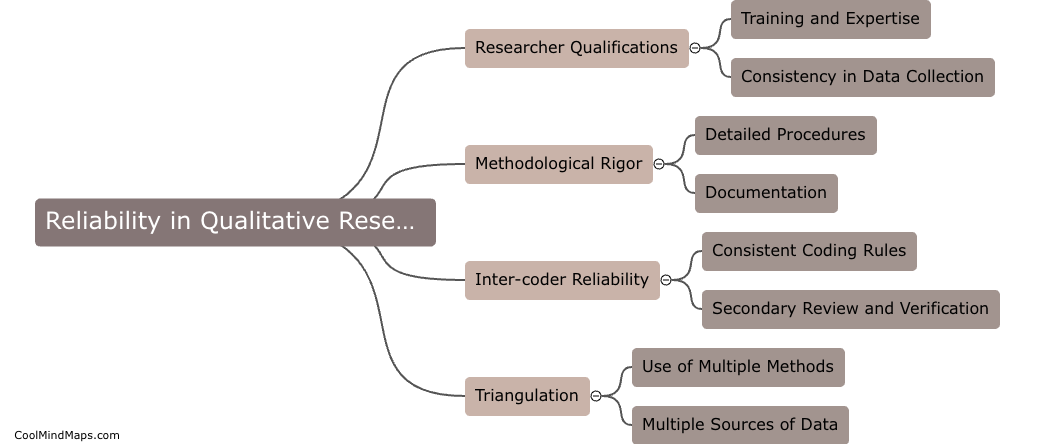
This mind map was published on 20 April 2023 and has been viewed 106 times.
